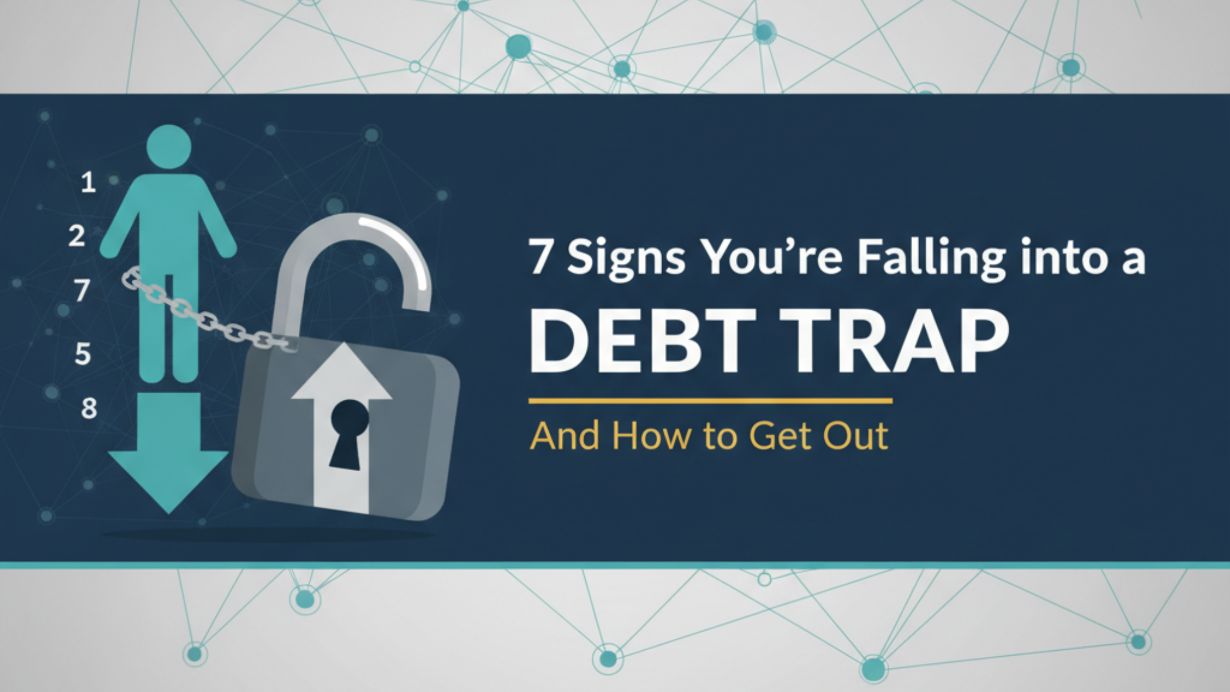· Debt Management · 3 min read
Can Debt Impact Your Mental Health? Here’s What to Do!
Debt isn’t just a financial burden—it affects your mental health too. From anxiety and guilt to relationship strain, financial stress can feel overwhelming. Learn how to regain control with practical steps like budgeting, seeking professional help, and prioritizing self-care. Take the first step toward financial and emotional freedom today!
 (ExpertPanel) Can Debt Impact Your Mental Health Here’s What to Do!.DMQmZTzK.jpg)
Debt isn’t just a financial issue—it takes a serious toll on your emotional well-being. The constant pressure of unpaid bills, creditor calls, and uncertainty about the future can lead to anxiety, stress, and even depression. Understanding how debt affects your mental health is the first step toward overcoming it. Let’s explore the emotional burden of debt and practical ways to regain control.
The Emotional Impact of Debt
1. Anxiety and Stress
When you’re in debt, every missed payment feels like a ticking time bomb. The fear of legal action or financial ruin can lead to sleepless nights and a constant state of worry.
What to Do:
● Create a structured repayment plan.
● Break down your debt into smaller, manageable amounts.
● Practice stress-relief techniques like meditation, exercise, or journaling.
2. Guilt and Shame
Many people blame themselves for getting into debt, feeling like they’ve failed financially. This guilt can make it difficult to seek help or even talk about their struggles.
What to Do:
● Accept that debt can happen to anyone.
● Focus on solutions rather than past mistakes.
● Talk to a trusted friend, family member, or financial advisor.
3. Relationship Tension
Financial stress is one of the leading causes of tension in relationships. Disagreements about money management or repayment priorities can create emotional distance between partners and family members.
What to Do:
● Communicate openly about financial concerns.
● Work together to create a budget or repayment strategy.
● Seek professional counseling if financial stress is affecting your relationship.
4. Depression and Hopelessness
Feeling stuck in debt can lead to emotional exhaustion and even depression. The weight of unpaid dues might make it seem like there’s no way out, leading to avoidance and inaction.
What to Do:
● Break your debt down into small, achievable goals.
● Seek professional counseling if negative feelings persist.
● Remind yourself that debt is temporary, and solutions exist.
Steps to Regain Control of Your Finances and Mental Well-Being
1. Face the Reality
Ignoring your financial situation will only increase your stress. Take an honest look at your debts and calculate exactly how much you owe.
Action Step:
● Make a list of all your debts, including interest rates and due dates.
2. Seek Professional Guidance
If managing debt on your own feels overwhelming, consider consulting a debt resolution expert. Services like Expert Panel can help negotiate settlements and ease your financial burden.
Action Step:
● Contact a debt advisor to explore settlement or restructuring options.
3. Build a Budget That Works for You
A clear budget can help you track expenses and allocate funds toward debt repayment.
Action Step:
● Identify non-essential expenses you can cut down on.
● Set realistic monthly repayment goals.
4. Prioritize Mental and Emotional Well-Being
Debt stress can consume you, but prioritizing self-care can help you stay emotionally strong.
Action Step:
● Exercise regularly and maintain a healthy routine.
● Surround yourself with supportive people.
● Avoid unhealthy coping mechanisms like impulsive spending.
5. Set Achievable Financial Goals
Setting unrealistic expectations can lead to frustration. Instead, break your debt into smaller, manageable targets.
Action Step:
● Set milestone goals and celebrate progress.
● Track how much you’ve paid off to stay motivated.
How We Can Help You Find Relief
Here we understand that debt is more than just numbers—it’s a real challenge that affects your life. Our team provides expert guidance on:
● Debt Settlement Services
● Loan Negotiation & Reduction
● Credit Card Debt Management
● Personalized Repayment Plans
The Path to Financial Freedom: Take Back Control
Debt doesn’t have to define your life. By acknowledging the problem, seeking the right help, and taking small, consistent steps, you can regain financial stability and emotional peace. Remember, no matter how overwhelming it seems, there’s always a way forward. Take action today, and start your journey toward financial freedom.


(Expertpanel) Personal Loan Boom_ Fading Fast or Just a Pause_ (1).D1iwCU47.jpg)
.BV34hg_8.jpg)